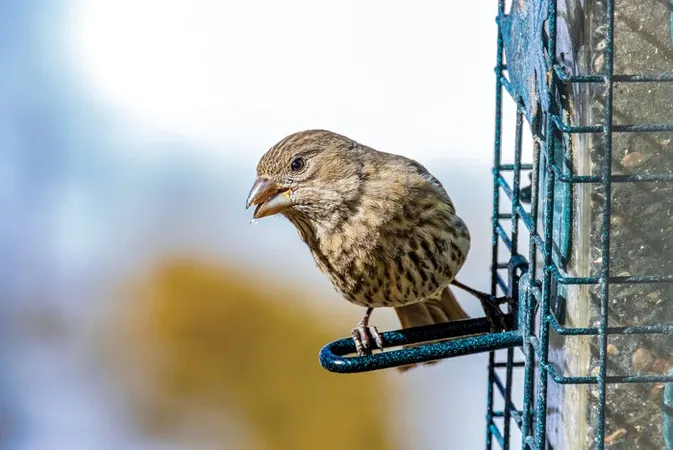
Revolutionary Ivermectin-Coated Seeds Transform Birds into Mosquito-Eradicating Allies!
2024-11-19
Author: Ming
Introduction
As summer approaches, local governments across the United States typically ramp up efforts to combat the relentless threat posed by mosquitoes. These bothersome insects not only disrupt outdoor activities but also carry serious diseases such as West Nile virus and malaria. However, researchers in California and Colorado may have discovered an innovative solution to this pressing public health issue.
Ivermectin-Coated Seeds
In a fascinating new strategy, scientists are experimenting with bird feeders filled with seeds coated in ivermectin—an antiparasitic drug known for its mosquito-killing properties. In areas burdened with diseases like malaria, ivermectin has been successfully administered to humans to manage outbreaks. Brian Foy, a vector-borne infectious diseases expert at Colorado State University, articulated this novel approach: “It’s essentially an extension of that same idea.”
The Importance of Mosquito Control
The significance of addressing mosquito populations is underscored by the alarming statistics related to West Nile virus. Since its emergence in the U.S. in 1999, approximately 59,000 cases have been reported, leading to about 3,000 fatalities. The life cycle of these infected mosquitoes typically begins with birds, the primary hosts of the virus. They become infected when mosquitoes bite them and then, in turn, can transmit the virus to humans.
Research Methodology
To tackle this issue, Foy's research team meticulously coated seeds with a solution containing veterinary-grade ivermectin. The unique coating, protected by an inert polymer, is invisible and tasteless to birds, allowing them to consume the seeds without resistance. This protection ensures that the active ingredient remains effective against mosquitoes, even when exposed to sunlight or environmental factors.
Community Involvement
This summer, the team recruited 40 enthusiastic volunteers from Fort Collins, Colorado, and Davis, California, to fill their bird feeders with these ivermectin-coated seeds. Special caged tube feeders were utilized to ensure that only smaller birds—like sparrows and finches—could access the seeds, while larger animals, such as squirrels, were kept at bay. To gauge the effectiveness of this groundbreaking method, blood samples were collected from the visiting birds to confirm the presence of ivermectin. Additionally, mosquito traps set nearby helped researchers track the impact of this initiative on local mosquito populations.
Potential Impact
Foy expressed hope that this could significantly reduce the risk of West Nile virus during peak summer months. As the study progresses, the team plans to repeat the experiments multiple times to validate their findings. Sarah Hamer, a veterinary ecologist at Texas A&M University and session chair at the recent American Society for Tropical Medicine and Hygiene conference, emphasized the ingenuity of this mosquito-control approach. She remarked that transforming birds into mosquito-killing allies could provide communities with a powerful new tool in their ongoing fight against disease transmission during the summer.
Conclusion
As scientists and health officials continue to search for innovative and environmentally friendly strategies to tackle mosquito populations, this project demonstrates a compelling intersection of wildlife biology and disease prevention. The future of mosquito control may very well lie in the beaks of our feathered friends!


 Brasil (PT)
Brasil (PT)
 Canada (EN)
Canada (EN)
 Chile (ES)
Chile (ES)
 España (ES)
España (ES)
 France (FR)
France (FR)
 Hong Kong (EN)
Hong Kong (EN)
 Italia (IT)
Italia (IT)
 日本 (JA)
日本 (JA)
 Magyarország (HU)
Magyarország (HU)
 Norge (NO)
Norge (NO)
 Polska (PL)
Polska (PL)
 Schweiz (DE)
Schweiz (DE)
 Singapore (EN)
Singapore (EN)
 Sverige (SV)
Sverige (SV)
 Suomi (FI)
Suomi (FI)
 Türkiye (TR)
Türkiye (TR)